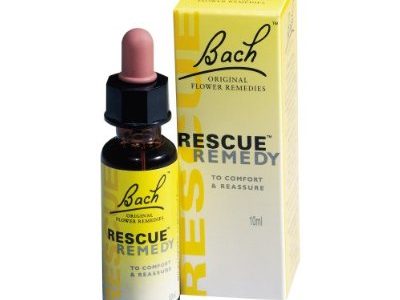 Need to buy a car but are nervous about going it alone? Perhaps you’re used to playing “good cop, bad cop” with a partner, or you’re just not a great negotiator. Maybe you really have no clue how to play the game and the idea is putting the fear of God into you.
Need to buy a car but are nervous about going it alone? Perhaps you’re used to playing “good cop, bad cop” with a partner, or you’re just not a great negotiator. Maybe you really have no clue how to play the game and the idea is putting the fear of God into you.
Fear not! Whether you are looking to lease or buy a car, if you follow these simple tips you’re bound to drive out of the lot with the deal of the century.
First, let’s look at whether your lifestyle is more suited for leasing a car or buying one:
Should you lease or buy?
A decade ago 80% of customers purchased a new car while only 20% leased, but in the past few years these numbers have almost flipped. What do they know that we don’t? Here are some pros and cons:
Benefits of Leasing
- If you take out a 2-3 year lease, just when major repairs would need to be made and warranties end, you can trade the car in for a new one.
- You’ll have all the latest technology and safety features.
- If you own a business, you can deduct a percent of your monthly payments based on the percentage of time you use the car for business purposes. This will be much easier than keeping track of mileage.
- If you do decide to lease, experts advise taking out the insurance offered by the dealer. Otherwise you could get charged for dings or bald tires when you return the car, and you have no way to fight it.
Remember, you can negotiate the monthly price with leases too!
To Buy or Not to Buy?
Driving a new car “into the ground” is hands down the best use of your money. So consider buying a car with staying power– hopefully one you can drive for 10 years or more. When you do pay off your car, financial planners advise continuing to put that money into a savings account so you can pay cash for your next car. Here are benefits of buying:
- Leases limit the number of miles you can drive during the leasing period; if you go over that amount you will have to pay a fee for every mile you go over. A three-year lease usually has a limit of 15,000 miles per year.
- You don’t need as high a credit score to buy a car as you would for a lease.
- If you have a new driver in the family, you’re better off buying a used car that they won’t have to be as careful with.
- Resale. Hello?
In the end, take a good look at your budget, driving needs and credit history before you decide whether to buy or lease – and then…. Then let the games begin!
At the Dealership
- Cruise dealerships to find the make and model you want. You can also use online tools such as http://usnews.rankingsandreviews.com/cars-trucks to get a general idea of pricing from various dealerships in your area.
- Make an appointment with a salesperson of the dealership of your choice and tell them you are serious about purchasing from them and mention that you are not interested in wasting your time.
- Studies show that the best time to shop is on a day when the weather is terrible,toward the end of the month. Salespeople always have end of month quotas to meet. Weekdays are also much better than nights and weekends, when dealerships tend to be busier. The worst time to buy is during a “sales event.”. Late August or early September is the best time to shop, as the dealership will be trying to get the previous year’s models off the lot to make room for the new ones.
- If you have a car to trade in, look up its current book value at www.kbb.com. You can also see the current invoice costs to the dealer for new models here, but keep in mind the dealership may also be getting rebates from the manufacturer.
- Take a good look at your budget and determine how much you can afford for car payments before you go shopping
- Tell the salesperson due to your current financial circumstances, X amount is all you can afford to pay, which should be slightly lower than the actual amount. However, when negotiating, only discuss the final price of the car, not monthly payments. Otherwise the dealer will extend the loan period to suit your monthly budget, and you will end up paying a lot more in interest.
- Never negotiate the value of your trade-in separately from the new car– it should be part of the package. If the dealer gives you a good price for the trade-in he or she will simply add that amount to the price of the new car and vice versa. The same holds true when they offer to “pay off the rest of your current car.”
- When negotiating, stick to the amount you can afford. You’ve come in with a number lower than your limit, so try not to budge– they don’t want lose your sale, remember? If you do inch up $50-$75 (with a lot of agony) closer to what you can afford, the salesperson will likely come down hundreds. It’s also not a bad idea to play one dealership against another– if you say the lot down the street offered you xyz, the dealer you’re talking with might be more willing to bargain. This requires a little footwork, but it can pay off.
- The salesperson will be making lots of trips back and forth to the sales manager to present your offers. This is so the manager can keep control over the pricing, but also because he or she wants to hear your reaction to their counteroffers. They also want to psych you into believing the salesperson needs the manager’s permission for such a low price. When the manager comes out of his or her office to talk with you, the process is just about over. Keep your cool and stick to your guns. This is nothing more than a psychological negotiating tactic designed to wear you down. Go in well-rested, well-educated and well-fed, and you’ll be up for to the task.
- Don’t accept a financing offer from the dealership until you have compared their rates with your bank or credit union. This may mean contacting the credit union or bank before you begin shopping.
- Don’t pay for any add-ons or accessories you don’t really need such as “rust-proofing.” The dealership may also try to add on a “dealer fee” that you can negotiate to have taken off. And never, ever, get the extended warranty.
With these tips in mind, you can shop for a car like a rock star. And you can apply these negotiating tactics to other aspects of life as well– don’t be afraid to ask for what you want, you might just get it.






